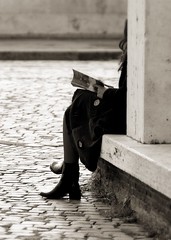I didn’t make any resolutions or goals for 2019, per se, but I did have some lifestyle changes I want to make. Here’s how things went for the month of January.

In 2018, I didn’t use enough vacation leave and found myself in danger of losing days as my work anniversary month concluded. So, I crammed in some days off as my workload allowed. This is not ideal, and it is also an indication that something is off-kilter with my work/life balance. So, I decided that for 2019, I needed to plan some days off in advance so I’d actually use my vacation leave, since I rarely take actual vacations. So far, I haven’t used any of my leave time yet, but I have scheduled a long weekend in February and am taking Spring Break off in March, and have plans for May and July on the horizon. I’ll be looking ahead to other times of the year when I can take off a week or more without negatively impacting my workload.

I tend to get really busy once the semester begins, because that’s when all my “extra-curricular” activities kick in. One thing that often gets de-prioritized is physical activity. So, for the month of January, I mapped out a workout schedule to fit around my regular obligations with a varied plan that would keep me from getting bored or using “recovery” as an excuse to not do anything. It’s worked, mostly, though it does require me to make some adjustments towards the end of the week if I haven’t also done a good job of getting to bed on time and sleeping enough. This process has been helpful for me to reach my goal of 219 workouts in 2019.

Midway through January, I decided to have a hard conversation with myself about my budget and long-term goals. This was in part due to a decision in early January to start seeing a therapist again, and the impact that would have on my budget. Despite making more money than I ever have or ever thought I could, I still manage to spend nearly all of it every month, living paycheck to paycheck. I had been trying to use Mint to make and stick to a budget in 2018, but that just wasn’t working. I’m giving the YNAB philosophy (and software) a try this time around, and it’s already helping me re-think how I budget and how I make spending decisions. If you decide to give it a try, too, I highly suggest reading the book and/or making use of the free webinars. On its own, the platform is okay, but it’s so much better if you understand the underlying system.

